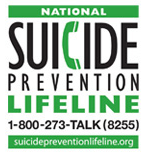Podcast: Play in new window | Download
If you believe someone is considering suicide, is it OK to ask: “Are you thinking about committing suicide?” or other direct questions? This is one of the questions addressed in this episode.
Hopelessness seems to be overtaking an increasing number of people–veterans and civilians alike. This is showing up in an ever increasing suicide rate. We will discuss this difficult topic and look at some practical ways of addressing this issue. There is hope! We can take action.
Let’s get right into today’s topic: Suicide
– About 12 (to 14) per 100,000 death are from Suicide in the U.S. (CDC report from 2009)
– For the Veteran population it is more than double at 30 per 100,000 http://www.publicintegrity.org/2013/08/30/13292/suicide-rate-veterans-far-exceeds-civilian-population
- 49,000 Veteran suicides between 2005 and 2011
- 2012 VA study reports 8030 in the year 2010 (22 per day)
- Up from a previous study of 19 per day
- Suicide and PTSD
– The BBC reported that British Soldier suicide outpaced combat death in Afghanistan in 2012
50 suicides (active + veterans) and 40 KIA
Civilian
- Increase in the number of suicides from 1999-2010 affects all ages, genders and ethnic groups
- In U.S. the number 10 leading cause of death among all age group, genders and ethnicities
- 50 to 59 years old increased by about 49%
The loss from any to suicide is tragic. However in the U.S. more men than women and more whites than any other ethnic group commit suicide.
White males most affected – Second leading cause of death ages 10-24. The largest single teen group affected, 19 out of every 100 death, boys (white) ages 15-19.
People from all ethnicities, genders and age groups are increasingly losing hope and increasingly deciding to end their own lives. Why the increase? Let us know what you think in the comments section or leave us a voice message.
4 practical arts to become part of the solution…
Learn:
Some warning signs:
- Increase/decreased sleep, eating, aggression (sings of depression)
- Withdrawing for relationships and society
- Drug/Alcohol abuse
- Talking about giving up, ending it all, never returning
- Possibly giving away possessions
- Express a hopeless view of the future
- Express feelings of worthlessness
- Significant Loss: Relationship, Job, Identity, Ability
Look: for any of the warring sings (and many others) listed above. Has your friend, coworker, child, spouse, gone through a major change? Not every one that is depress or gone through a loss will commit suicide.
Listen: Listen for any warning sings. Are they talking about death, dying, “going away” or any permanent change that raises any red flag?
Lead then to safety and to help.
- Doctor, psychologist, ER, ASIST trained cooworker, police, first responders,…
- Don’t ignore or dismiss the sings
- Don’t leave them alone
- Don’t be afraid to ask the question: “Are you planning/or going to commit suicide?”
Need help! This is a list of crisis lines for several countries:
http://en.wikipedia.org/wiki/List_of_suicide_crisis_lines
Share your thoughts with us! Ideas, experiences… What is your school, community, church, company or organization doing to help people in crisis?
Below is the Mayo Clinic Teen Suicide Prevention video. It provides practical advice for any age group.

